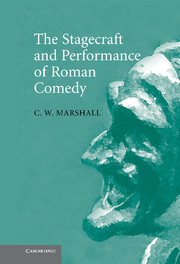3 - Masks
Published online by Cambridge University Press: 22 September 2009
Summary
GREEK MASKS AND THE ROMAN STAGE
Masked performance was a standard feature of Greek and Roman theatre. Masks do not operate in isolation: they are necessarily only components in a larger visual system that presents a complex of relationships that extends in three directions. First, masks relate to one another structurally, as has been shown for comedy and tragedy in the fifth century and later for Menander and New Comedy. Second, masks coordinate with other resources the actor brings to his part: to be effective, a masked actor must use his body and voice in a way that harmonises with the mask. Finally, masks may resonate with the society that produces them, so that when an audience sees a mask, it may make associations with particular individuals (as in the case of the so-called portrait masks of Aristophanes) or with representations of faces in other plays or other artistic media. It is this third, societal, dimension that should make us question any direct continuity of the system of masks used from Greek New Comedy to the Roman New Comedy of Plautus a century later. Just as the script has been freely adapted into Latin, so is there a parallel transposition of the Greek masking tradition.
The mask is one tool available to Plautus' actors in their performance. Aulus Gellius (Attic Nights 5.7) confirms Roman masks covered the whole head, as was the case in the Greek tradition.
- Type
- Chapter
- Information
- The Stagecraft and Performance of Roman Comedy , pp. 126 - 158Publisher: Cambridge University PressPrint publication year: 2006



